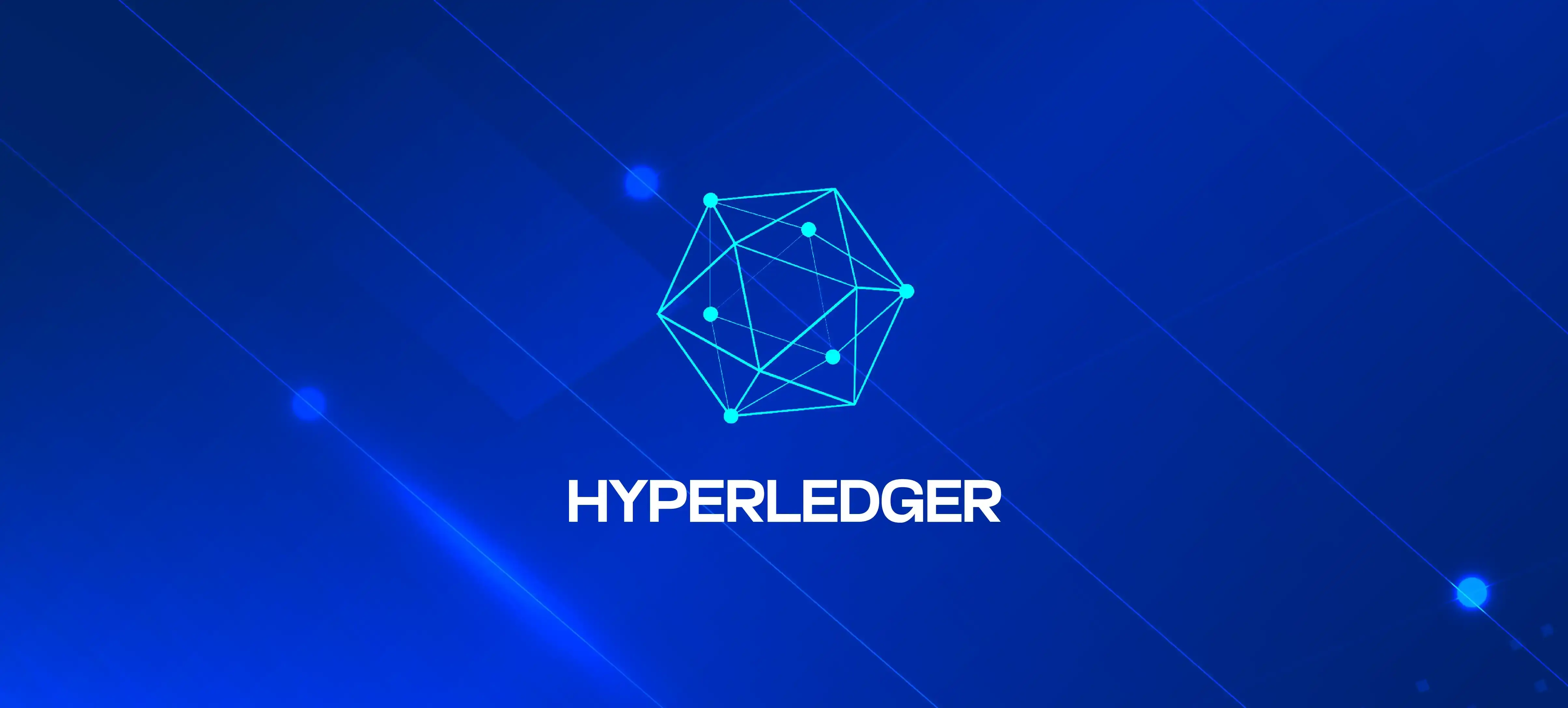
6 Quick and Effective Tips To Hire Rust Developers
Table of Contents
Have you struggled to hire Rust developers for your upcoming/ongoing projects? If so, you have landed on the right page. We know hiring developers for Rust blockchain projects is hard, especially when the market saturates 5 job opportunities for every developer.
A Rust developer on your team can take your company to great heights. However, hiring a skilled one can be expensive. As 2022 stats, Rust is the most wanted programming language in the world; 17.6% of developers are not of this language but wish to become a part of it.
So, in such scenarios how can we perform an effortless hiring process and recruit Rust developers that can do justice to your company? Follow a planned path to avoid falling into a pitfall that leads you to nowhere. These six quick and practical tips can help you hire Rust and blockchain developers.
Outline your Rust Development Requirements
First, start by outlining your requirements, skillset, qualifications, experience, and, most importantly, your budget.
Before getting started, you should be clear about your needs. Once you get your requirements noted, you can get an appropriate candidate who maximizes their contribution to the project.
Outlining your hiring needs can help you create a job description that perfectly describes the right skills, qualifications, and experience.
Here are some questions you should consider answering while developing your job requirements to hire blockchain developers.
-
What are your Rust development needs?
-
Do you require a single developer or a Rust development team?
-
Are there any budget limitations?
-
Specifically, which skills are you looking for in a developer?
-
Will your developer be joining a group or working independently?
Answering these questions can help you determine your hiring requirements and get the right developer for Rust blockchain projects.
Check Familiarity with Concurrency and Parallelism
Rust has built-in support for concurrent programming. You can use it to evaluate candidates' understanding of Rust's concurrency primitives, such as threads, async/await, and channels. Ask about their experience designing scalable and efficient concurrent systems or utilizing Rust's parallel processing capabilities.
Asses Async Programming
Rust provides support for asynchronous programming through its ‘async/await’ syntax and the ‘tokio’ or ‘async-std’ runtime libraries. Inquire about the candidate's knowledge of async programming in Rust, including their experience handling asynchronous I/O, writing non-blocking code, and utilizing futures and streams.
Are they familiar with Rust Channels?
Rust provides multiple approaches for handling concurrency, including message passing and shared memory. Candidates should be familiar with Rust's channels, such as those offered by the ‘std::sync::mpsc’ module, and understand how to use them effectively for inter-thread or inter-process communication. Additionally, they should be aware of Rust's atomic types and synchronization primitives for shared memory scenarios.
Check for Asynchronous Error Handling Skills
Asynchronous programming introduces new challenges in error handling. Assess the candidate's knowledge of Rust's error handling mechanisms, such as the ‘Result’ and ‘Option’ types, and how they handle errors in asynchronous contexts. Ask about their experience with error propagation, managing panics, and implementing custom error types in Rust.
Asses Community Involvement
The Rust community is vibrant and encourages active participation. Candidates who contribute to the Rust ecosystem by submitting bug reports, contributing to open-source projects, or participating in online discussions demonstrate their passion and commitment to the language. Check if candidates have made any notable contributions or engaged with the Rust community.
Open-Source Contributions
Evaluate the candidate's contributions to open-source Rust projects. Also, Inquire about the nature and scale of their contributions.
Participation in Rust Forums and Discussions
Ask about their involvement in online communities like the Rust user forum, Reddit's /r/rust, or Rust-related Discord servers. Here you can look for active engagement in discussions and knowledge-sharing.
Attendance at Rust Events and Meetups
See if the candidate has attended Rust conferences or local meetups. Check if they have presented talks or workshops related to Rust.
Stack Overflow Contributions
Check if the candidate has provided helpful answers or explanations related to Rust on Stack Overflow. Look for active participation and positive contributions.
Collaboration and Mentoring
Inquire if the candidate has collaborated with other Rust developers on projects. Ask about their experience in mentoring or guiding newcomers to Rust.
Heading: Benefits of Hiring Rust Developers
Create an infographic showcasing the advantages and benefits of hiring Rust developers. Include key points
-
Performance
-
Memory Safety
-
Concurrency
-
Ecosystem Growth
-
Strong Community Support
Assess Knowledge of Memory Management
Assessing a candidate's knowledge of memory management in Rust is crucial to ensure they can effectively leverage Rust's ownership system and avoid common memory-related bugs. Here are some points to consider when evaluating a candidate's memory management expertise:
Ownership and Borrowing
Evaluate the candidate's understanding of Rust's ownership system, including concepts like ownership, borrowing, and lifetimes.
You can also inquire about their ability to write code that adheres to ownership rules, avoids memory leaks, and minimizes the risk of dangling references.
Memory Safety and Null Pointers
Assess the candidate's familiarity with Rust's memory safety guarantees and how it eliminates null pointer dereferences.
Ask about their experience handling Option types and using pattern matching to handle potential null values safely.
Concurrent Memory Access
Seek the candidate's knowledge of concurrent programming in Rust and how it addresses memory access synchronization.
Assess their understanding of atomic types, mutexes, and other synchronization primitives to prevent data races and ensure thread safety.
Memory Optimization and Performance
Evaluate the candidate's ability to optimize memory usage and improve performance in Rust.
Inquire about their knowledge of Rust's memory layout and techniques to minimize memory allocations, such as reusing memory buffers or utilizing stack allocation.
Memory Management Patterns and Techniques
Assess the candidate's familiarity with common memory management patterns in Rust, such as reference counting (Rc) and interior mutability (RefCell).
Inquire about their understanding of smart pointers, such as Box, Arc, and Cow, and when to use them effectively.
Emphasize Other Technical Skills
Though your Rust developer must have the required skill set, such as knowledge of language syntax, understanding of core features, and a firm grip on the advantages of Rust programming language within its ecosystem, apart from these must-have skills, you should also look for other technical knowledge, for example:
-
Look for candidates experienced in using integrated development environments (IDEs) like Xcode, Eclipse, and Android Studio.
-
Consider their proficiency in version control systems such as Git, familiarity with JavaScript libraries like jQuery, understanding of cloud computing frameworks (e.g., AWS, Azure), and knowledge of database management systems (e.g., MySQL, Oracle)
-
Emphasize candidates' grasp of DevOps practices, including CI/CD pipelines, containerization (e.g., Docker), and infrastructure as code (e.g., Terraform).
-
Deep knowledge of DevOps processes, tools, methods and practices
Approach Tech Meetups & Conferences
Tech meetups and conferences for Rust programming language are always great to broaden your network and get developers near your office. Such opportunities can help you forge stronger relationships and learn about emerging technologies in your niche.
These tech meetups can further help you with the following:
-
Hiring Rust developers without jumping into many details.
-
Getting insights into ongoing and upcoming trends in the tech industry.
-
Identifying skills you may require in your RustDev team.
-
Showcasing your brand values and culture.
-
Establishing yourself as an active member of the community and the best employer of choice.
-
Tapping into passive candidates not explicitly looking for job opportunities but may take advantage of a great one.
Outcome
If you are at the end of the post, you would have known by now that to hire a Rust developer, one would have to go through many steps and considerations to get a perfect one on your team. We have barely scratched the surface of hiring and sustaining the talent on board.
That is why outsourcing Rust developers for blockchain projects has become a typical response to getting dedicated devs. At InvoBlox, you get immediate access to the best developers anywhere in the world. With us, you don't need to worry about anything when it comes to hiring, sourcing, or retaining developers for your Rust projects.
Head over to our page for hiring Rust developers; you will have the talent you need. Thanks to our highly refined recruitment process, we can guarantee you, skilled Rust engineers.
Table of Contents
Have you struggled to hire Rust developers for your upcoming/ongoing projects? If so, you have landed on the right page. We know hiring developers for Rust blockchain projects is hard, especially when the market saturates 5 job opportunities for every developer.
A Rust developer on your team can take your company to great heights. However, hiring a skilled one can be expensive. As 2022 stats, Rust is the most wanted programming language in the world; 17.6% of developers are not of this language but wish to become a part of it.
So, in such scenarios how can we perform an effortless hiring process and recruit Rust developers that can do justice to your company? Follow a planned path to avoid falling into a pitfall that leads you to nowhere. These six quick and practical tips can help you hire Rust and blockchain developers.
Outline your Rust Development Requirements
First, start by outlining your requirements, skillset, qualifications, experience, and, most importantly, your budget.
Before getting started, you should be clear about your needs. Once you get your requirements noted, you can get an appropriate candidate who maximizes their contribution to the project.
Outlining your hiring needs can help you create a job description that perfectly describes the right skills, qualifications, and experience.
Here are some questions you should consider answering while developing your job requirements to hire blockchain developers.
-
What are your Rust development needs?
-
Do you require a single developer or a Rust development team?
-
Are there any budget limitations?
-
Specifically, which skills are you looking for in a developer?
-
Will your developer be joining a group or working independently?
Answering these questions can help you determine your hiring requirements and get the right developer for Rust blockchain projects.
Check Familiarity with Concurrency and Parallelism
Rust has built-in support for concurrent programming. You can use it to evaluate candidates' understanding of Rust's concurrency primitives, such as threads, async/await, and channels. Ask about their experience designing scalable and efficient concurrent systems or utilizing Rust's parallel processing capabilities.
Asses Async Programming
Rust provides support for asynchronous programming through its ‘async/await’ syntax and the ‘tokio’ or ‘async-std’ runtime libraries. Inquire about the candidate's knowledge of async programming in Rust, including their experience handling asynchronous I/O, writing non-blocking code, and utilizing futures and streams.
Are they familiar with Rust Channels?
Rust provides multiple approaches for handling concurrency, including message passing and shared memory. Candidates should be familiar with Rust's channels, such as those offered by the ‘std::sync::mpsc’ module, and understand how to use them effectively for inter-thread or inter-process communication. Additionally, they should be aware of Rust's atomic types and synchronization primitives for shared memory scenarios.
Check for Asynchronous Error Handling Skills
Asynchronous programming introduces new challenges in error handling. Assess the candidate's knowledge of Rust's error handling mechanisms, such as the ‘Result’ and ‘Option’ types, and how they handle errors in asynchronous contexts. Ask about their experience with error propagation, managing panics, and implementing custom error types in Rust.
Asses Community Involvement
The Rust community is vibrant and encourages active participation. Candidates who contribute to the Rust ecosystem by submitting bug reports, contributing to open-source projects, or participating in online discussions demonstrate their passion and commitment to the language. Check if candidates have made any notable contributions or engaged with the Rust community.
Open-Source Contributions
Evaluate the candidate's contributions to open-source Rust projects. Also, Inquire about the nature and scale of their contributions.
Participation in Rust Forums and Discussions
Ask about their involvement in online communities like the Rust user forum, Reddit's /r/rust, or Rust-related Discord servers. Here you can look for active engagement in discussions and knowledge-sharing.
Attendance at Rust Events and Meetups
See if the candidate has attended Rust conferences or local meetups. Check if they have presented talks or workshops related to Rust.
Stack Overflow Contributions
Check if the candidate has provided helpful answers or explanations related to Rust on Stack Overflow. Look for active participation and positive contributions.
Collaboration and Mentoring
Inquire if the candidate has collaborated with other Rust developers on projects. Ask about their experience in mentoring or guiding newcomers to Rust.
Heading: Benefits of Hiring Rust Developers
Create an infographic showcasing the advantages and benefits of hiring Rust developers. Include key points
-
Performance
-
Memory Safety
-
Concurrency
-
Ecosystem Growth
-
Strong Community Support
Assess Knowledge of Memory Management
Assessing a candidate's knowledge of memory management in Rust is crucial to ensure they can effectively leverage Rust's ownership system and avoid common memory-related bugs. Here are some points to consider when evaluating a candidate's memory management expertise:
Ownership and Borrowing
Evaluate the candidate's understanding of Rust's ownership system, including concepts like ownership, borrowing, and lifetimes.
You can also inquire about their ability to write code that adheres to ownership rules, avoids memory leaks, and minimizes the risk of dangling references.
Memory Safety and Null Pointers
Assess the candidate's familiarity with Rust's memory safety guarantees and how it eliminates null pointer dereferences.
Ask about their experience handling Option types and using pattern matching to handle potential null values safely.
Concurrent Memory Access
Seek the candidate's knowledge of concurrent programming in Rust and how it addresses memory access synchronization.
Assess their understanding of atomic types, mutexes, and other synchronization primitives to prevent data races and ensure thread safety.
Memory Optimization and Performance
Evaluate the candidate's ability to optimize memory usage and improve performance in Rust.
Inquire about their knowledge of Rust's memory layout and techniques to minimize memory allocations, such as reusing memory buffers or utilizing stack allocation.
Memory Management Patterns and Techniques
Assess the candidate's familiarity with common memory management patterns in Rust, such as reference counting (Rc) and interior mutability (RefCell).
Inquire about their understanding of smart pointers, such as Box, Arc, and Cow, and when to use them effectively.
Emphasize Other Technical Skills
Though your Rust developer must have the required skill set, such as knowledge of language syntax, understanding of core features, and a firm grip on the advantages of Rust programming language within its ecosystem, apart from these must-have skills, you should also look for other technical knowledge, for example:
-
Look for candidates experienced in using integrated development environments (IDEs) like Xcode, Eclipse, and Android Studio.
-
Consider their proficiency in version control systems such as Git, familiarity with JavaScript libraries like jQuery, understanding of cloud computing frameworks (e.g., AWS, Azure), and knowledge of database management systems (e.g., MySQL, Oracle)
-
Emphasize candidates' grasp of DevOps practices, including CI/CD pipelines, containerization (e.g., Docker), and infrastructure as code (e.g., Terraform).
-
Deep knowledge of DevOps processes, tools, methods and practices
Approach Tech Meetups & Conferences
Tech meetups and conferences for Rust programming language are always great to broaden your network and get developers near your office. Such opportunities can help you forge stronger relationships and learn about emerging technologies in your niche.
These tech meetups can further help you with the following:
-
Hiring Rust developers without jumping into many details.
-
Getting insights into ongoing and upcoming trends in the tech industry.
-
Identifying skills you may require in your RustDev team.
-
Showcasing your brand values and culture.
-
Establishing yourself as an active member of the community and the best employer of choice.
-
Tapping into passive candidates not explicitly looking for job opportunities but may take advantage of a great one.
Outcome
If you are at the end of the post, you would have known by now that to hire a Rust developer, one would have to go through many steps and considerations to get a perfect one on your team. We have barely scratched the surface of hiring and sustaining the talent on board.
That is why outsourcing Rust developers for blockchain projects has become a typical response to getting dedicated devs. At InvoBlox, you get immediate access to the best developers anywhere in the world. With us, you don't need to worry about anything when it comes to hiring, sourcing, or retaining developers for your Rust projects.
Head over to our page for hiring Rust developers; you will have the talent you need. Thanks to our highly refined recruitment process, we can guarantee you, skilled Rust engineers.





